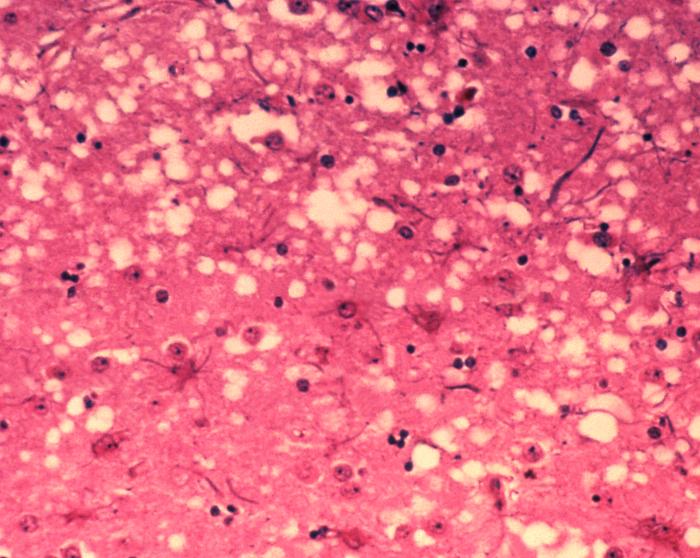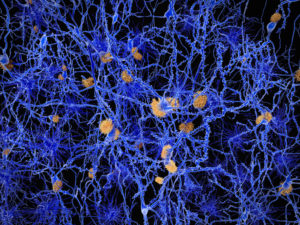In the late-80’s through the 90’s, food and health agencies focused on a mysterious fatal brain disease that infected thousands of cattle. Bovine spongiform encephalitis—or “mad cow disease”—is caused by an infectious protein called a prion. Despite fears that tainted meat would cause the disease to spread to humans, mad cow disease never really made an impact on human health. However, forms of the prion disease such as Creutzfeldt-Jakob disease do affect humans.
In addition to Creutzfeldt-Jakob disease, many neurodegenerative diseases such as Alzheimer’s, Parkinson’s, Huntington’s and amyotrophic lateral sclerosis (ALS or Lou Gehrig’s disease) are now thought to be a result of prion-like activity. There is no cure for these diseases, however, new experimental treatment strategies might help slow the progression of neural degeneration.


 Forgetting. Forgetting your address; your spouse; your children; your friends; your life. It is something that none of us want to think about, but it hangs over some of us like a specter. Can’t remember if you fed the cat? Where you put your car keys? Did you forget to pack your lunch or return a phone call? Maybe you are trying to do too many things at once, or maybe you are tired. There are lots of perfectly normal reasons why we all forget things from time to time, but every time I forget something there is a nagging voice in my head saying, “Maybe it is something else.”
Forgetting. Forgetting your address; your spouse; your children; your friends; your life. It is something that none of us want to think about, but it hangs over some of us like a specter. Can’t remember if you fed the cat? Where you put your car keys? Did you forget to pack your lunch or return a phone call? Maybe you are trying to do too many things at once, or maybe you are tired. There are lots of perfectly normal reasons why we all forget things from time to time, but every time I forget something there is a nagging voice in my head saying, “Maybe it is something else.” 